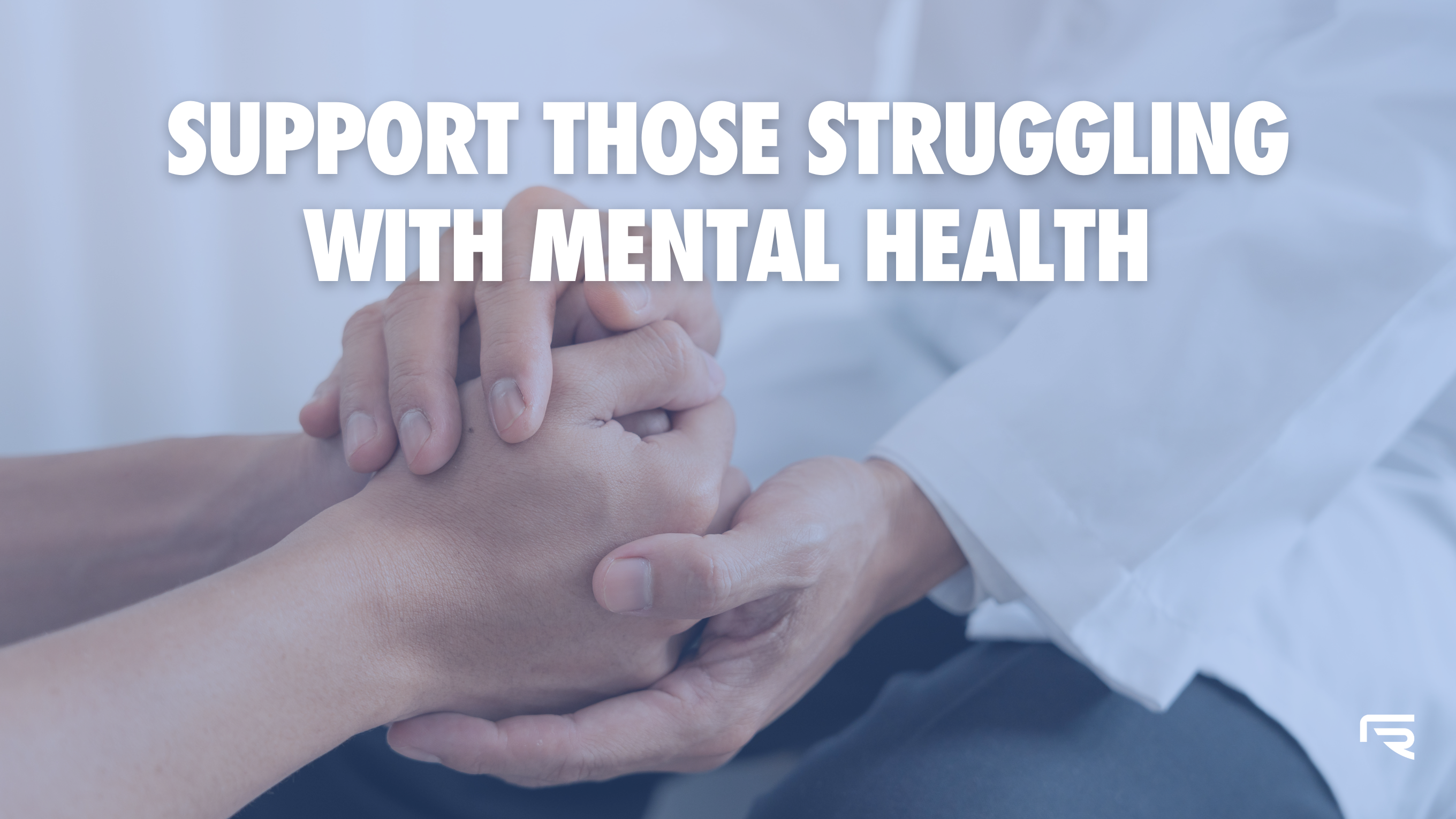Support Those Struggling With Mental Health

On Thursday, October 10, 2024, we celebrate World Mental Health Day and remind ourselves of the importance of spreading awareness, education, and advocacy against the social stigma of mental health. According to the World Health Organization, 1 out of every eight people (approximately 970 million people) are living with mental disorders, of which anxiety and depression are the most common. Although many struggle, the stigma around mental health still prevents people from seeking much-needed treatment. Often, stigma comes from a lack of education, understanding, and fear. In addition, inaccurate portrayals of mental illness in the media further perpetuate the already existing stigma. While the public may accept and understand the origin of mental health conditions, many still have negative opinions about those struggling with mental health. This month, we're doing our part to de-stigmatize mental health by spreading awareness and education about mental health! Check out our tips to support those you love who are struggling with mental health:
- Create a distraction-free conversation space: Choose a time and space to speak openly without distractions and judgment. Silence calls or texts, and ensure your body language shows you're listening. Need help figuring out how to do so? Check out the Body Language of Listeners and discover how your body conveys interest in the presence of those you are with!
- Keep your word: When a loved one is struggling with mental health, do your best to ensure they don't feel abandoned. Yes, sometimes things come up, but if you agree to meet, uphold your word. If you must change the date or time, notify them immediately. Show them that you care by your actions!
- Let them share how much or how little they choose: According to the Mental Health Foundation, talking takes trust and courage, and no one should be pressured to share something before they're ready. Perhaps you are the first person they're speaking with. Allow them to lead the discussion at their own pace. Be open to whatever they feel safe to share.
- Do not attempt to diagnose or question their feelings: While you may know your loved ones well, do not begin to diagnose them. Let a trusted healthcare provider do what they do best, and encourage your loved one to seek their guidance. If they are hesitant to see a mental health specialist such as a psychologist, suggest visiting a general physician. Offer to accompany them to the appointment if they’d like.
- Use supportive terms and phrases: Ensure your words are helpful and foster a safe space. If you're unsure what to say, try saying, "If you want to talk, I'm here to listen." Discover other helpful phrases and learn how to show you sympathize.
- Listen carefully to what they say: Make sure they feel your support. You can demonstrate this by repeating what they say and asking open-ended questions to get more details. Remember, you might disagree with some shared things, but make sure that they know you understand them fully and respect their feelings.
- Know your limits: Sometimes more serious help is needed, and that's okay. Trained crisis counselors are available 24/7 by texting "MHA" to 741-741 or calling 1-800-273-TALK(8255). In addition, if you or someone you love is struggling with suicide ideation, dial 988 and reach a Crisis Center designed to handle what you're going through.
Mental health is a journey we all navigate, and breaking the stigma requires collective effort and compassion. By fostering understanding and offering support, we can help those around us feel seen and heard. Let’s continue to educate ourselves, engage in open conversations, and be part of a world that prioritizes mental well-being.

